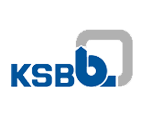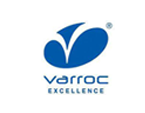M.Tech Mechanical Engineering (CAD/CAM/CAE)
Programme Overview
The M.Tech in Mechanical Engineering (CAD/CAM/CAE) programme at MIT-WPU equips students with in-depth knowledge in computer-aided design, manufacturing, and engineering, delving into cutting-edge subjects like computational geometry, artificial intelligence, and customised CAD/CAM software. From advanced sheet metal forming to biomechanics and micro-nano manufacturing technology, students explore various topics to meet the demands of a rapidly evolving engineering landscape. This programme ensures students excel in designing high-quality, cost-effective products across various industries.
Throughout the curriculum, students gain hands-on learning experiences and proficiency in subjects like automated manufacturing system modeling, computer-aided engineering, and micro & nanomanufacturing technology. The curriculum includes programme electives such as integrated product design, supply chain management, and biomechanics to promote holistic development.
Students also participate in internships and research projects, gaining practical experience with real-world applications that help them become highly skilled professionals.
Key features of M.Tech Mechanical Engineering (CAD/CAM/CAE) include:
Advance Machine Learning – Students can learn advanced image detection techniques from Machine Learning.
Internship training – Students can get internships for major projects in companies like Dassault Systemes, Barclays and more.
Advanced curriculum - The advanced curriculum covers cutting-edge topics like computational geometry, AI-driven design, and micro-nano manufacturing technology. It integrates hands-on learning with state-of-the-art CAD/CAM/CAE software so students can excel in high-paying roles.
Duration & Fees
Duration
2 Years
Applications Open for 2025
Fee Per Year
₹ 2,05,000
Scholarship
| GATE Score | MIT-WPU Stipend per month | Workload / Teaching Assistantship in MIT-WPU |
|---|---|---|
|
Eligible General Category GATE Score for stipend as per AICTE norms |
₹ 12,500/- (For the entire duration of the programme) |
8 hours workload per week |
|
GATE Score 15 and up-to Eligible General Category cut-off |
₹ 8,000/- (For first year only) |
6 hours workload per week |
|
GATE Score 10 to 14.99 |
₹ 6,000/- (For first year only) |
4 hours workload per week |
Note:
- During Working Hours, M.Tech Students will be considered for 'on campus job' as per Policy
- Stipend will be effective only after receiving complete fees for the first year.
- In case student is receiving any government scholarship/stipend, University stipend will not be applicable.
Terms & Conditions Apply:
- All Scholarships are awarded on a First Come First Serve basis. All Scholarships are awarded as fee adjustments.
- To continue the scholarship for the entire duration of the programme, a minimum level of the academic score has to be maintained at an 8 CGPA across all semesters, attendance is to be maintained at a minimum of 80 percent, with no live backlogs in any subject/programme and no semester break, and there should be no disciplinary action against the student.
For more detailed information visit our website: https://mitwpu.edu.in/scholarships
Eligibility
Minimum 50% aggregate score in graduation (4 years) of relevant Engineering Branch from UGC approved University or equivalent (at least 45% marks, in case of Reserved Class category candidate belonging to Maharashtra State only)
And
GATE Qualified (Obtained a positive score in GATE 2023, 2024, 2025) /MIT-WPU CET 2025 /PERA CET 2025
Or
Sponsored Candidate (Need 2 years of work experience after graduation, in field related to graduation)
Selection Process
The Selection process for this programme is based on the merit of MIT-WPU CET 2025 score / PERA 2025 Score or GATE Score (2023/2024/2025) & Personal Interaction conducted by MIT-WPU.
For admission under sponsored category, candidates should have a minimum two years of full time work experience in a registered firm/ company/ industry/ educational and/or research institute / any Government Department or Government Autonomous Organisation in the relevant field in which admission is sought.
Programme Highlights
- Case-based learning pedagogy, national and international immersion programmes, and skill enhancement tracks like business communication and effective presentation foster a comprehensive learning experience.
- Hands-on training in cutting-edge technologies with industry-standard software like SolidWorks, AutoCAD, CATIA, and ANSYS for proficient 2D and 3D modeling, simulation, and analysis, enabling precise mechanical design development.
- Specialisation in FEA and CFD Analysis, Integration of Additive Manufacturing and Rapid Prototyping.
- State-of-the-art lab facilities and a dedicated Centre for Industry-Academia Partnerships (CIAP), ensure students have access to modern resources and industry collaboration for internship and placement assistance.
- Emphasis on a holistic approach to learning, integrating theoretical knowledge with practical application, industry exposure, and skill development to prepare graduates for diverse career paths and challenges in the field.
- Industry visits, guest lectures, seminars, and workshops by eminent researchers and industry practitioners from organisations like Dassault Systemes, Cybage, Inteliment, Xpansion International, Barclays, FEV India Pvt Ltd, Analyzer CAE solutions pvt Ltd. and CISCO, among others, provide students with insights from industry experts.
- A minor in Computer Engineering for non-computer branches provides a competitive edge and added expertise. It also includes hands-on training in technologies and tools like iOS Training using Swift, mobile application development (using Kotlin), full-stack development, internet technologies, IoT, data science, cyber security, etc.
- Entrepreneurship encouragement through funding, mentoring, and network connections offered by the MIT-WPU Pune Technology Business Incubator (TBI). Learn to develop mathematical models to simulate and optimise the performance of automated manufacturing systems, predict system behaviour and improve various industrial processes through our updated curriculum.
Career Prospects
CAE Safety Engineer
CAE Engineers
CAE Analysts
Application CAE Engineers
Sr. Analyst-CAD
Programme Outcomes
- Independently carry out research and development work, demonstrating a degree of mastery in the specialised area, surpassing the programme requirements.
- Synergise design engineering and computer tools to provide solutions to real-world complex engineering problems alongside health, safety, environmental, and commercial aspects, while minimising adverse impacts.
- Select and apply appropriate computational and analytical techniques to model complex problems, discussing the limitations of these techniques to ensure comprehensive understanding.
- Function effectively as an individual or team member/leader, evaluating own and team performance, and communicating complex engineering concepts effectively to technical and non-technical teams.
- Practice design engineering, engage in independent lifelong learning, and identify and close research gaps.
Placements & Recruiters
100% Placement Assistance
Top Recruiters
FAQs
Graduates can work as Design Engineers, CAE Analysts, or Product Development Specialists in industries like automotive, aerospace, and manufacturing. Many also pursue roles in research institutions and simulation consulting firms.
Students master industry-standard tools like CATIA, ANSYS, Solidworks, AutoCAD, and FEA software for design and analysis. They also learn programming and automation tools for advanced manufacturing processes.
The programme is a two-year full time postgraduate degree programme with theoretical and practical sessions. The teaching includes hands-on workshops, industry projects, and lab work using advanced computational tools.
The curriculum includes mandatory industry internships and live projects with leading manufacturing companies. Students work on real-world engineering problems and get exposure to current industry practices.
Students can explore research in areas like digital manufacturing, optimisation algorithms, additive manufacturing, and digital twin technology. The programme emphasises the publication of research papers and participation in funded projects.




















 admissions@mitwpu.edu.in
admissions@mitwpu.edu.in 